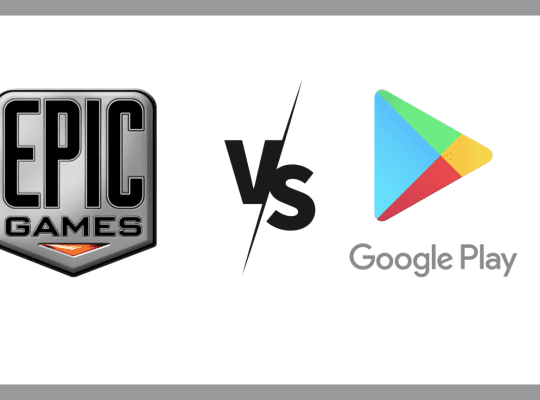Google’s Defense in the Landmark Antitrust Trial
In the recent antitrust trial, U.S. et al. v. Google, the tech giant has built a defense strategy based on several key arguments. This analysis will delve into Google’s legal arguments, including precedent cases and previous regulatory action against the company. We’ll also evaluate the convincingness of the arguments and discuss potential implications for the broader tech industry.

John E. Schmidtlein, left, Google’s lead courtroom lawyer, arriving at the E. Barrett Prettyman U.S. Courthouse in Washington last month to defend the company in a landmark antitrust case Credit: NY Times
Key Arguments by Google
- Justified actions and consumer benefits: Google insisted that its actions were justified, and that it has helped both consumers and competition. The company’s defense focused on its innovations, framing itself as a good corporate citizen pushing the boundaries of technology.
- Payment to Apple: Central to the U.S. case against Google was the accusation that the company paid Apple and other tech platforms to become the default search engine on devices, thereby stifling competition and preventing Apple from potentially developing its own search product. Google CEO Sundar Pichai argued the value in securing default search engine status, and characterized the agreements as sound business decisions. Internal data revealed that Google paid $26.3 billion to maintain this position in 2021, with $18 billion being paid to Apple.
- Alternatives to Google’s search engine: Google challenged the notion that other search engines couldn’t compete for default status on browsers. The company’s lawyers highlighted an instance in which Mozilla had selected Yahoo as the default search engine, only to return to Google in 2017 after facing user dissatisfaction with Yahoo’s poor user experience and ad overload.
Evaluation of Arguments
Given the context and available information, some of Google’s arguments can be seen as convincing while others remain open to scrutiny:
- Justified actions and consumer benefits, while an important factor in assessing the company’s impact, may not be directly relevant to the issue of alleged market dominance. These arguments can be seen as an appeal to Google’s goodwill rather than a strong legal defense against monopoly accusations.
- Payment to Apple, as explained by Sundar Pichai, can be perceived as a strategic, legally acceptable business decision. However, it is crucial to consider whether such deals give Google an unfair advantage in securing its dominance over rival search engines.
- By highlighting Mozilla’s partnership with Yahoo, Google raises doubts about whether the company is maintaining its monopoly illegally or simply delivering a better product than its competitors. This argument could prove influential in determining whether there are genuine barriers to entry for competing search engines or if the case is simply about product quality differences.
Precedent Cases and Regulatory Actions
The Microsoft antitrust case in the 1990s has emerged as an important precedent for this trial. As with Microsoft, Google’s defense may invoke the comparison to argue the broader implications of a ruling against Google. While the Microsoft verdict led to the company avoiding a breakup, critics argue that it still impacted the company’s ability to maintain market dominance amidst the rise of Apple and Google. This precedent could play a vital role in shaping the outcome of the Google antitrust trial.
Implications for the Tech Industry
The verdict in this landmark case will have significant implications for the tech industry as a whole. If Google loses, it could indicate a shift toward stricter regulations on tech giants, encouraging similar antitrust cases against companies like Apple, Amazon, and Facebook. Moreover, it may lead to new legislation on antitrust and competition policy, potentially reshaping the landscape of the tech sector.
in conclusion, with this trial potentially setting a precedent for the industry, it will be interesting to see how things play out in the coming months. The outcome of this case could lead to drastic changes in the way tech giants operate and provide an indication of how antitrust laws may evolve over time.
No matter what the verdict is, one thing remains certain – the Google antitrust trial will have far-reaching consequences that ripple across the entire technology sector. It will be a momentous decision that shapes not only how these companies conduct business but also how our society interacts with them going forward.
The implications of a potential win or loss for Google are vast, but perhaps no other company stands to gain or lose more than esportport itself. As the industry’s leading esports platform, we have a vested interest in how this trial plays out and will be closely monitoring the situation.
Our mission is to provide an equal playing field for competitive gamers of all levels and backgrounds. With that in mind, our brand voice is clear – we are committed to creating a fair and inclusive environment for everyone who wants to compete.
We believe that people should be able to express themselves freely without fear of retribution or censorship from tech giants like Google. This ongoing antitrust battle could very well set the tone for how companies interact with their users going forward, so it’s one we’ll be watching closely. We stand behind our commitment to upholding fairness and equality, both within our platform and beyond it.
Alsoe read
A California jury has found that Google Play is a monopolistic marketplace

